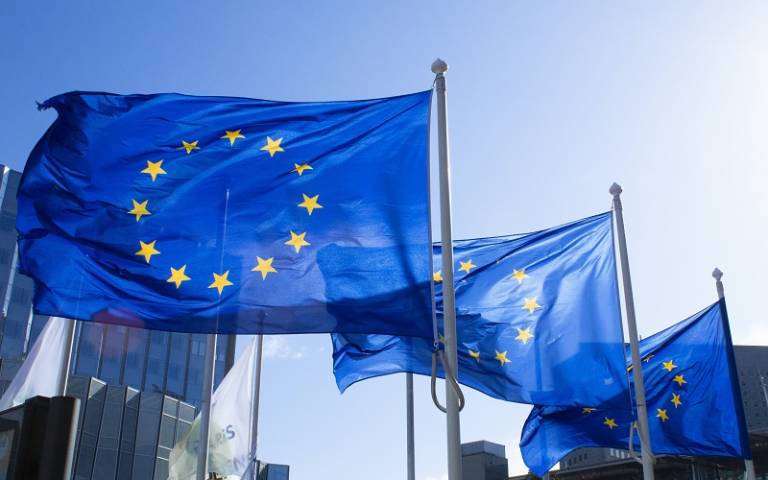UCL remains very successful in securing Horizon Europe funding
2 August 2023
Colleagues are encouraged to identify and target multiple upcoming opportunities with the support of the ERIO team, with upcoming proposal-writing workshops and weekly drop-in sessions.

UCL remains very successful in securing research & innovation funding under the European Union’s Horizon Europe programme, and colleagues are encouraged to identify and target multiple upcoming opportunities with the support of the European Research & Innovation Office (ERIO) team. All awarded Horizon Europe projects will receive full financial support from the UK Government’s Horizon Europe Guarantee scheme.
To support the UCL community ERIO, a unit of Award Services within Research & Innovation Services (RIS), will be holding a proposal-writing workshop covering various upcoming Health, Climate, Energy, and Mobility calls for Collaborative grants, along with an overview of the “hop on” facility, the European Innovation Council, Widening, and Mission work programmes. The workshop will also cover the new proposal templates and budget requirements.
The workshop will be held at 11:00 on Wednesday 16 August via Microsoft Teams and will be repeated on Wednesday 23 August at the same time – links to join the workshops can be found here. The workshop will also be recorded and made available to UCL colleagues upon request.
Uncertainty remains across the sector regarding whether the UK will associate to the EU’s Horizon Europe funding programme, and despite encouraging signals following the conclusion of the Windsor Agreement, an agreement is now not expected until at least Autumn.
Despite this uncertainty, UCL colleagues and consortia continue to be highly successful in the programme, with many recent awards and a high overall success rate. The UK Government’s Horizon Europe Guarantee scheme continues to guarantee the funding associated with successful UCL applications, and this has recently been extended to cover all calls with deadlines prior to the end of September. Eligible, successful applicants to Horizon Europe will receive the full value of their funding for the lifetime of their grant.
UCL’s Vice-Provost (Research, Innovation & Global Engagement), Professor Geraint Rees, comments that “it’s understandable that many across the UCL community are worried about applying to Horizon Europe in the face of persistent uncertainty across the sector. However, despite this our success rates are high and funding is flowing well through the Horizon Europe Guarantee. Colleagues should continue to seize every available opportunity to secure Horizon funding, including targeting calls with deadlines beyond September”.
Recent UCL successes include particularly strong performance in securing European Research Council and Collaborative grants, with six of the latter awarded in July alone, totaling €1.9 million for UCL and spanning three separate calls for proposals. Notably, for one of these calls, four out of seven UCL proposals were successful; an extremely impressive 57% success rate for a call of this type. Additionally, UCL has achieved a notable rise in overall success rates between the final year of Horizon 2020 (19% success rate) and 2021, the first year of Horizon Europe (21% success rate).
ERIO’s weekly Horizon Europe drop-in sessions are also continuing throughout 2023, with sessions held every Friday at 14:00 via Microsoft Teams. These sessions are open to UCL colleagues and external collaborators worldwide, to discuss any questions or opportunities arising from participation in Horizon Europe. The link to join the sessions can be found on ERIO’s web page.
Please do continue engaging with ERIO and consider attending our workshops and drop-ins. We are here to answer any questions and to give advice. UCL’s Horizon Europe Response Group also continues to monitor the evolving picture with respect to Horizon Europe across the sector, and to plan UCL’s response to all eventualities.
 Close
Close

